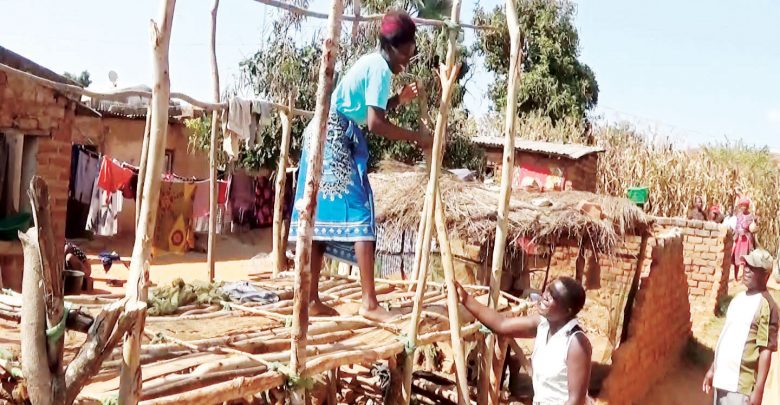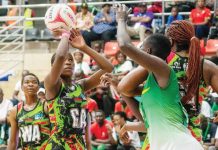Africa-Press – Malawi. For 11 years, Kate Mwanza has been longing to see husband Dalitso Mkandawire, who left for South Africa in 2010. He undertook the journey down south while the couple was expecting their third child.
Advertisement During the first two years in South Africa, Mkandawire used to regularly communicate with his wife but later decided to live in a world of his own.
It was only last year that he decided to get in touch with his family again and sent school fees for their 16-year-old son who got selected to secondary school.
“The support didn’t last, as he only paid the fees for one term. In fact, that has been the only kind of support he provided to the family since he went to South Africa,” Kate, her eyes glittering with tears, says.
Advertisement The man he had married in 2004 in Chilambe Village, Traditional Authority Chindi in Mzimba District, had drastically changed. “We only lived together for six years before he left for what he said was in search of greener pastures. I don’t know when he will return home,” Kate complains.
She further claims the absence of the husband in the house makes some people disrespect her. Apparently, her sister-in-law drove Kate and the three children out of the house so that she could occupy it.
The family is now in Kate’s home village. Another woman, Rexina Juwa, was driven out of marriage by her husband who accused her of not giving him a son after she gave birth to her fourth daughter.
“He used to physically assault me until I could not stand it anymore. He filed for divorce and convinced the court that I had facilitated the process by unceremoniously leaving my marriage,” Rexina says.
She further claims she was nearly raped by her own blood brother in his house where she had sought refuge. “He entered my room one night half-naked but failed to rape me after I shouted for help and his sons came to my rescue,” Rexina alleges.
Another girl we will call Mercy says she will live to remember March 2020 when her biological father allegedly defiled her in Euthini in Mzimba. Mercy was only 16 at the time and fell pregnant while in standard seven at a primary school in her area.
“My mother was a guardian to my granny who was admitted to the hospital when my father sneaked into my house while I was fast asleep.
“He defiled me, charging that he could not be starved of sex when I was around,” Mercy says. Apparently, the accused got arrested by the police and the case went as a far as the victim testifying in court.
“I am not sure what happened after that because in February this year, he came back home and chased us—my mother and us four children— from the village. We settled elsewhere,” Mercy says. Child Protection Worker at Euthini, Washington Phiri, says the accused was released on court bail.
Mercy is now back at school after successfully giving birth to a baby girl and is expected to take her Primary School Leaving Certificate of Education examinations next September and eventually become a teacher.
The challenges that women and girls face in Mzimba attracted the attention of the Catholic Commission for Justice and Peace (CCJP) in Mzuzu Diocese and Plan International Malawi.
With funding from European Union, through UN Women, the two organisations are implementing a one-year project on stepping up efforts to end violence against these groups of people in the district.
The awareness being raised through the project has reportedly resulted in an increase in reported cases of gender-based violence (GBV) such as rape, defilement, property grabbing and child marriage in Chindi’s area.
“There is also good case management and documentation in all institutions handling such cases,” Phiri says.
An official at Euthini Magistrates’ Court, Lughano Ng’ambi, says the project has also eased pressure on the court as most people are aware of case referral systems.
“There is more awareness on a number of human rights and governance issues. People know which issues to take to traditional leaders, police, community-based organisations, social welfare and courts whenever their rights have been trampled on,” Ng’ambi says.
Inkosi Chindi Area Development Committee Chairperson, Pascal Chiwaka, says the project has helped the area to develop by-laws for safeguarding the rights of women and girls.
“For example, anybody staying away from home for three consecutive years or more has to pay a fine of K50,000 while parents that tolerate early marriages are ordered to pay K50,000,” Chiwaka says. The fines are used for funding various projects in villages where the payees come from.
Mzuzu Diocese CCJP Coordinator, Felix Manda, states that economically empowering women and girls can help to reduce GBV cases; hence, they gave five goats to 172 women and girls in areas of Inkosi Chindi and Inkosi Mtwalo who survived the violence.
“We have divided the beneficiaries into groups of two people with each group getting five goats which we believe will generate income that can easily improve their livelihoods that can also earn them respect from both their families and society,” Manda says, further revealing that the project also targets young girls and boys to bridge imbalances.
A 2020 report by Unicef shows that 34 percent of women aged between 15 and 49 years experienced physical violence since age 15, while 21 percent of them experienced sexual violence in their life time, in Malawi.






